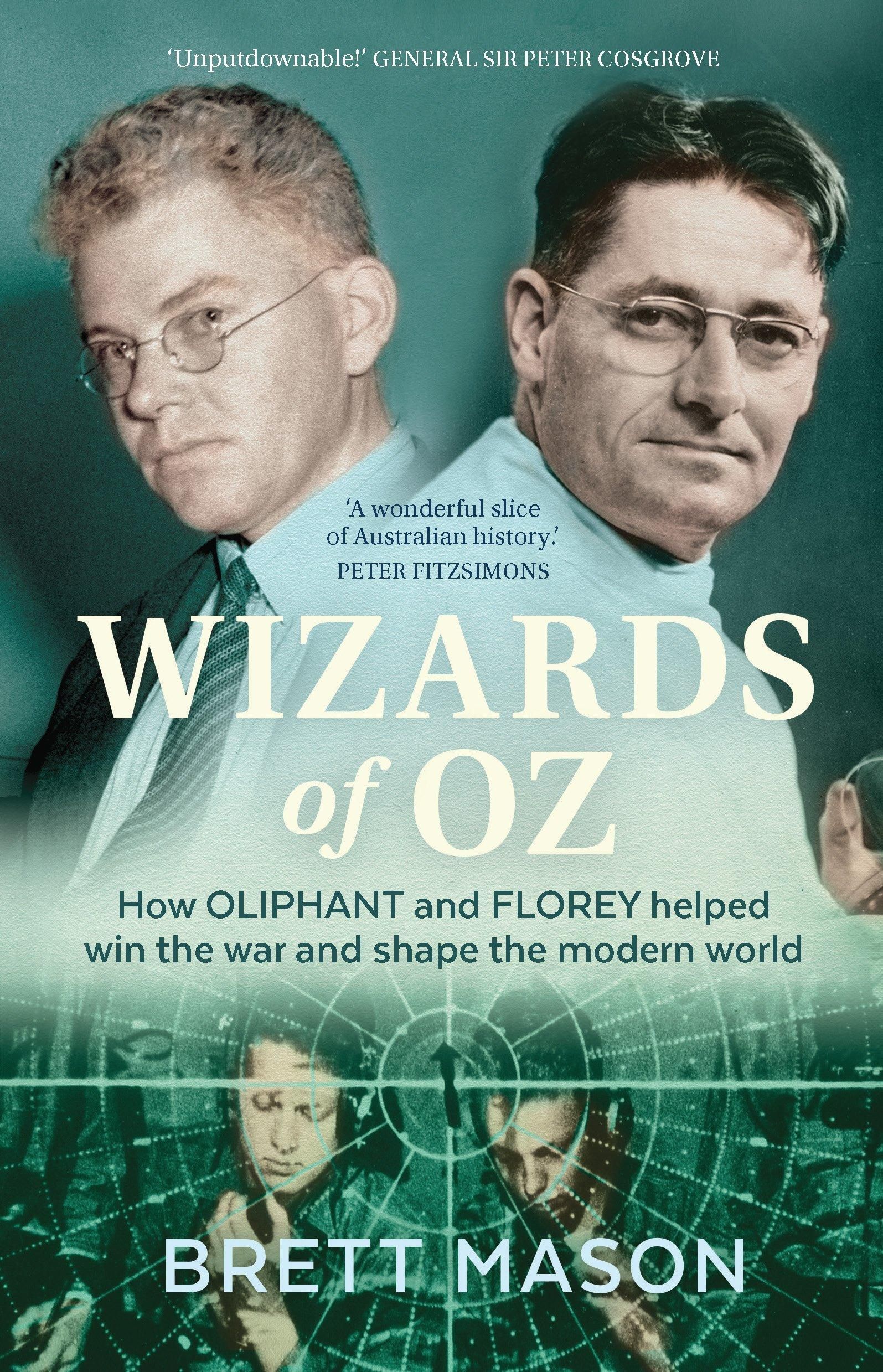Wizards of Oz: How Oliphant and Florey helped win the war and shape the modern world
NewSouth, $34.99 pb, 424 pp
Ambiguous gifts
What happens when you mix some of the biggest scientific breakthroughs of the twentieth century with the urgency of war? Wizards of Oz, a new book by lawyer and former politician Brett Mason, seeks to provide the answer. It is an account of a friendship between two Adelaide men and their extraordinary scientific achievements during World War II.
The older of the friends was Howard Florey, a pre-eminent medical scientist who (with Ernst Chain and Alexander Fleming) won the Nobel Prize for physiology and medicine in 1945 for producing a pure form of penicillin that could be used as a pharmaceutical. The younger was Mark Oliphant, a physicist who demonstrated that splitting atoms and nuclear fusion were both possible. This knowledge subsequently came to inform the Manhattan Project that developed the atomic bombs released over Hiroshima and Nagasaki in 1945. Oliphant was also busy on other projects. With his team, he developed microwave radar that enabled radar equipment small enough to be fitted to aircraft to provide detection powers that strengthened the Allies air defence at a crucial point in the war.
 Mark Oliphant, 1939 (Bassano Ltd, National Portrait Gallery, Gift of Ms Vivian Wilson 2004 via Wikimedia Commons)
Mark Oliphant, 1939 (Bassano Ltd, National Portrait Gallery, Gift of Ms Vivian Wilson 2004 via Wikimedia Commons)
This is the crux of Mason’s argument. Crises such as war can propel science into frenzied activity, even a race, to turn scientifically based ideas into action-packed defences for the realm. Mason rationalises:
Atomic bomb, microwave radar and penicillin were the three most significant inventions of the Second World War, brought to life in some of the greatest scientific-industrial projects of the war. The two Australians made science. And science, in killing and in healing, made war and then made peace, and so made history.
Continue reading for only $10 per month. Subscribe and gain full access to Australian Book Review. Already a subscriber? Sign in. If you need assistance, feel free to contact us.












Leave a comment
If you are an ABR subscriber, you will need to sign in to post a comment.
If you have forgotten your sign in details, or if you receive an error message when trying to submit your comment, please email your comment (and the name of the article to which it relates) to ABR Comments. We will review your comment and, subject to approval, we will post it under your name.
Please note that all comments must be approved by ABR and comply with our Terms & Conditions.